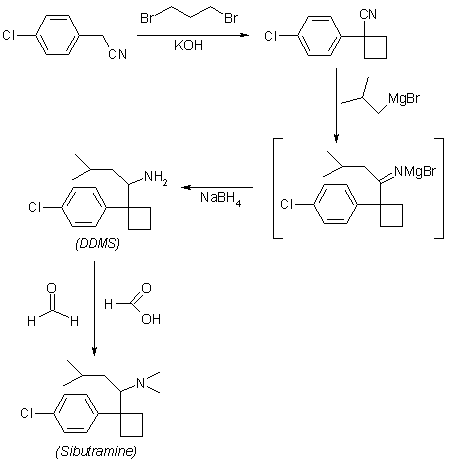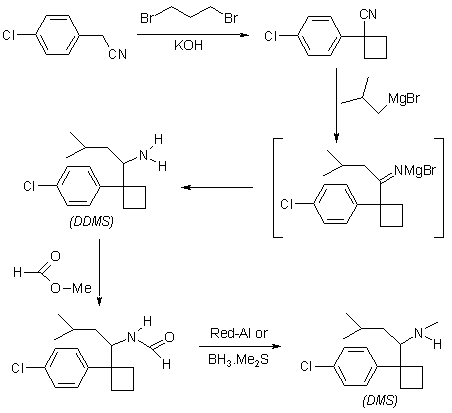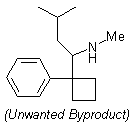
Since Sibutramine is so new, very little research has proceeded into the synthesis of Sibutramine and its derivatives. These syntheses are taken from the major work on Sibutramine from a chemical, rather than a medical, point of view. 18(Jeffery et al.)
A synthesis for sibutramine is provided below

However, as noted elsewhere, in vivo, the pharmacology of sibutramine is dominated by its metabolites; DMS and DDMS.
DMS can be synthesized in the following manner:

The reducing agents of choice for the last step of selectively reducing the carbonyl to the methyl group were sodium bis(2-methoxyethoxy)aluminium hydride (Red-Al®) and borane dimethyl sulfide complex. The Red-Al® produces about 5% of an unwanted byproduct (shown below) wheras the borane dimethyl sulfide complex does not - this makes the borane dimethyl sulfide complex better for this synthesis.
